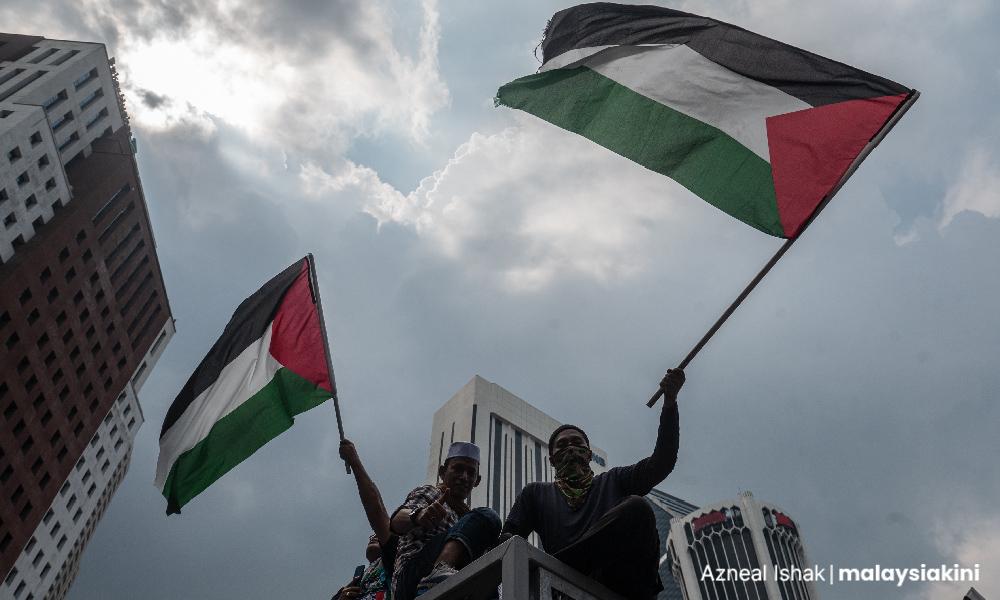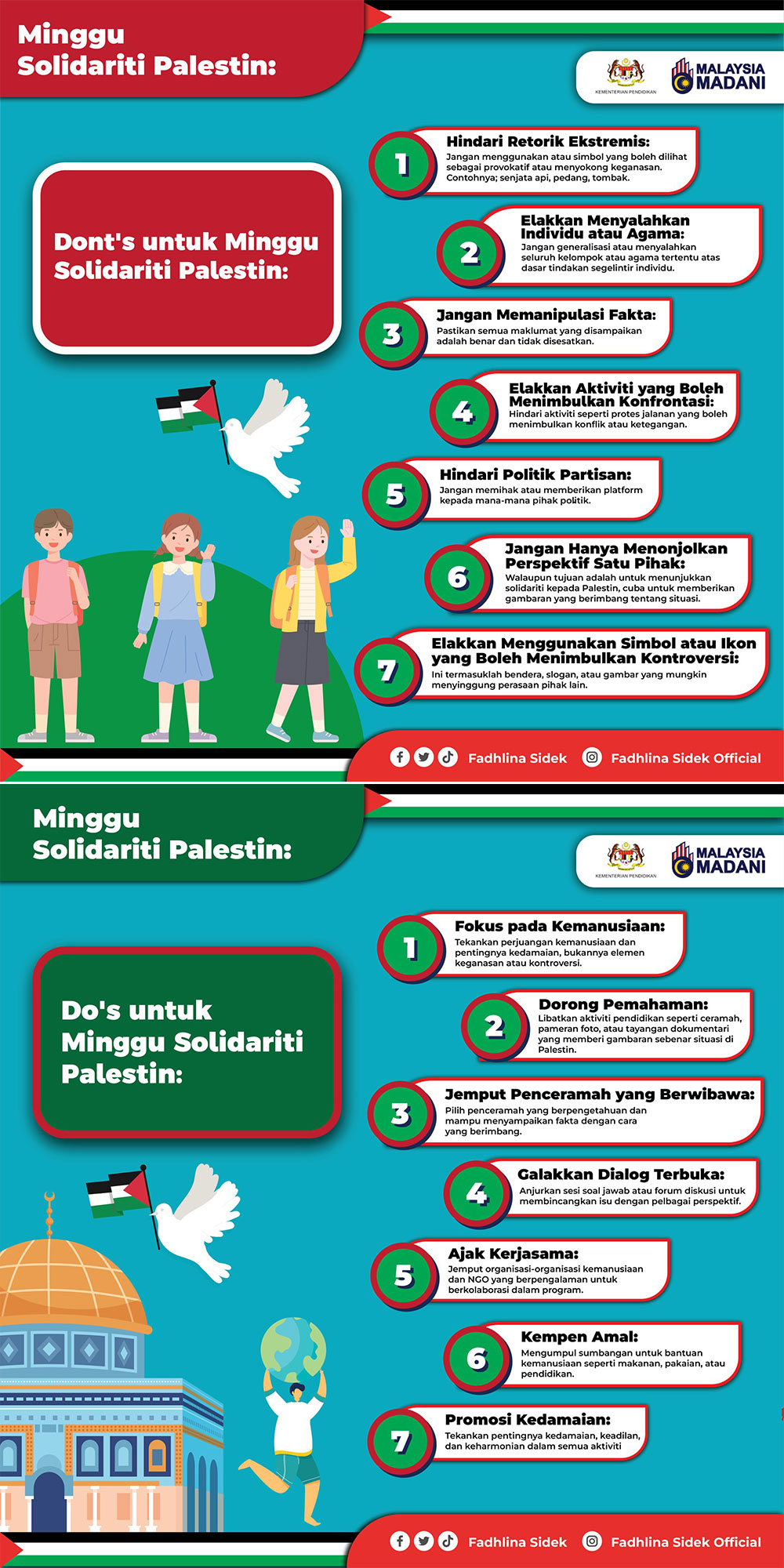Refraining from “extremist rhetoric” topped Education Minister Fadhlina Sidek’s “don’ts” on the Palestine Solidarity Week in schools, whereas taking pole position in her list of “dos” was that the focus should be on the “humanitarian” aspect.
However, it was the sixth point under the “dont’s” in the infographic which caught the attention of users as it told schools “not to just present the perspective of one side”.
“Although the intention is to show solidarity with Palestine, try to give a balanced picture of the current situation,” it read.
This led netizens to question if the minister was suggesting that students be told about the ongoing conflict from Israel’s perspective as well.
The infographic, which was shared on Fadhlina’s official Twitter account, comes in the wake of concerns over photographs of schoolchildren draped in scarves mimicking Hamas fighters and brandishing toy guns.
Under the first “don’t”, the infographic read: “Do not use symbols which can be seen as provocative or supporting violence. For example (toy) firearms, swords or spears.”
For the second “don’t”, schools were cautioned not to blame “individuals or religions”.
“Don’t generalise or blame a group of people or a specific religion for the actions of a few individuals,” it stated.
Third on the list is “not to manipulate facts” and to ensure that all the information presented is factual.
The fourth is to “avoid activities which can create confrontations”. The infographic stated: “Avoid activities like street protests which can lead to conflict and tensions.”
The fifth point is to steer clear of “partisan politics”, where schools were told not to take sides or provide a platform for political elements.
The seventh and final point instructed schools not to use “symbols or icons which can create controversies”.
Beneficial activities
As for the list of “dos”, the seven points, apart from focusing on the humanitarian crisis, were:
To encourage understanding through talks, photo exhibitions and documentaries to show the real situation in Palestine.
Invite credible speakers who are knowledgeable and can present facts in a balanced manner.
Encourage cooperation - invite experienced humanitarian organisations and NGOs to collaborate.
Charity campaign - collect funds for humanitarian aid for clothes, food and education.
Promote peace - emphasise the importance of peace, justice and harmony in all activities.






No comments:
Post a Comment
Note: Only a member of this blog may post a comment.